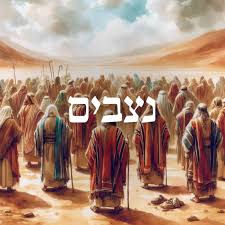Parashat וַיֵּלֶךְ / Vayeilech 5786 27 September 2025 / 5 Tishrei 5786 (Diaspora)
- secretary5038
- 1 day ago
- 4 min read
Updated: 16 hours ago

Parashat Vayeilech is the 52nd weekly Torah portion in the annual Jewish cycle of Torah reading.
This page displays the Diaspora Torah reading for Vayeilech 5786. The Israel schedule is used by Jews living in modern Israel.
Vayeilech (“He Went”) opens as Moses tells the Israelites that he will not lead them into the Land of Israel, and that Joshua will take over. He instructs the Israelites to gather and read Torah publicly every seven years. At God’s command, Moses writes a poem bearing witness to God’s covenant with the Israelites. [1]
Full Kriyah
1: 31:1-3 · 3 p’sukim p. 887
2: 31:4-6 · 3 p’sukim p. 887 - 888
3: 31:7-9 · 3 p’sukim p. 888
4: 31:10-13 · 4 p’sukim p. 888 - 889
5: 31:14-19 · 6 p’sukim p. 889 - 890
6: 31:20-24 · 5 p’sukim p. 890
7: 31:25-30 · 6 p’sukim p. 890
maf: 31:28-30 · 3 p’sukim p. 890 - 891
Haftarah*: Hosea 14:2-10; Micah 7:18-20 · 12 p’sukim *Shabbat Shuva (with Vayeilech) p. 891 - 893
Triennial year 3
N.B. the following is read in the Diaspora for 5786.
Vayeilech is read in its entirety in 5786. See Full Kriyah.
Commentary and Divrei Torah Sefaria OU Torah Rabbi Sacks z”l Jewish Theological Seminary
Moses is finishing up his final exhortation to Israel as he prepares to leave this life and Israel prepares to conquer and settle the promised land. Again, he reminds them that G-d has said that future generations will forsake Torah and embrace pagan worship. He encourages them to study Torah and rather embrace its teachings.
Here we go again? We have heard this warning throughout Deuteronomy and it was really emphasized during the Tochacha a few weeks ago. Are we really that much of a stiff-necked people?
Apparently, yes, we are. Consider that not all of Israel left Egypt during the Exodus. Consider that the tribes had a hard time working and cooperating with each other during the early days of our land. Consider that after only three kings, Israel split into the Northern and Southern Kingdoms with the former embracing–you guessed it–idolatry (one golden calf wasn’t enough, they had two!). After surviving two thousand years without a home and the worst oppression ever, look at how synagogue attendance and membership has dropped precipitously.
So as we meld into this new year, 5786, let’s recommit to our Torah, our heritage and embrace fulfilling the commandments, as much as we can. Consider that Judaism is a religion of action–let’s take that action.
Vayeilej 5786 / וַיֵּלֶךְ
27 de septiembre de 2025 / 5 de Tishrei de 5786 (Diáspora)
Parashá Vayeilej es la quincuagésima segunda porción semanal de la Torá en el ciclo anual judío de lectura de la Torá.
Esta página muestra la lectura de la Torá de la Diáspora correspondiente a Vayeilej 5786. El calendario de Israel es el que utilizan los judíos que viven en el Israel moderno.
Deuteronomio 31:1-31:30
Vayeilej (“Él Fue”) comienza con Moisés anunciando a los israelitas que no los guiará a la Tierra de Israel y que Josué tomará el relevo. Les ordena a los israelitas reunirse y leer la Torá públicamente cada siete años. Por orden de Dios, Moisés escribe un poema que da testimonio del pacto de Dios con los israelitas. [1]
Kriyah completa
1: 31:1-3 · 3 p’sukim p. 887
2: 31:4-6 · 3 p’sukim p. 887 - 888
3: 31:7-9 · 3 p’sukim p. 888
4: 31:10-13 · 4 p’sukim p. 888 - 889
5: 31:14-19 · 6 p’sukim p. 889 - 890
6: 31:20-24 · 5 p’sukim p. 890
7: 31:25-30 · 6 p’sukim p. 890
maf: 31:28-30 · 3 p’sukim p. 890 - 891
Haftarah*: Hosea 14:2-10; Micah 7:18-20 · 12 p’sukim *Shabbat Shuva (with Vayeilech) p. 891 - 893
Tercer año trienal
N.B. Lo siguiente se lee en la Diáspora en 5786.
Vayeilech se lee íntegramente en 5786. Véase la Kriyah completa.
Comentario y Divrei Torá Sefaria OU Torá Rabino Sacks z”l Seminario Teológico Judío
Moisés está terminando su exhortación final a Israel mientras se prepara para dejar esta vida y este se prepara para conquistar y establecerse en la tierra prometida. De nuevo, les recuerda que Dios ha dicho que las generaciones futuras abandonarán la Torá y abrazarán la adoración pagana. Los anima a estudiar la Torá y, en cambio, a abrazar sus enseñanzas.
¿Aquí vamos de nuevo? Hemos escuchado esta advertencia a lo largo del Deuteronomio y se enfatizó mucho durante la Tojajá hace unas semanas. ¿Somos realmente un pueblo tan testarudo?
Aparentemente, sí, lo somos. Consideren que no todo Israel salió de Egipto durante el Éxodo. Consideren que las tribus tuvieron dificultades para trabajar y cooperar entre sí durante los primeros días de nuestra tierra. Consideren que después de solo tres reyes, Israel se dividió en los Reinos del Norte y del Sur, y el primero abrazó, como ya habrán adivinado, la idolatría (un becerro de oro no era... ¡Ya basta, tenían dos!). Tras sobrevivir dos mil años sin hogar y la peor opresión de la historia, observen cómo la asistencia y la membresía en la sinagoga han disminuido drásticamente.
Así que, al entrar en este nuevo año, 5786, renovemos nuestro compromiso con nuestra Torá, nuestra herencia, y cumplamos los mandamientos tanto como podamos. Consideren que el judaísmo es una religión de acción; actuemos.







Comments